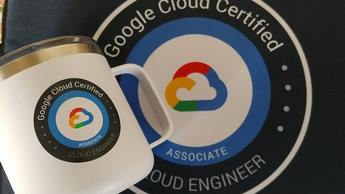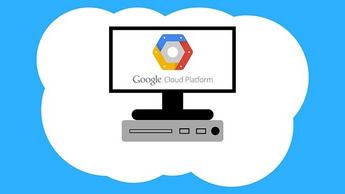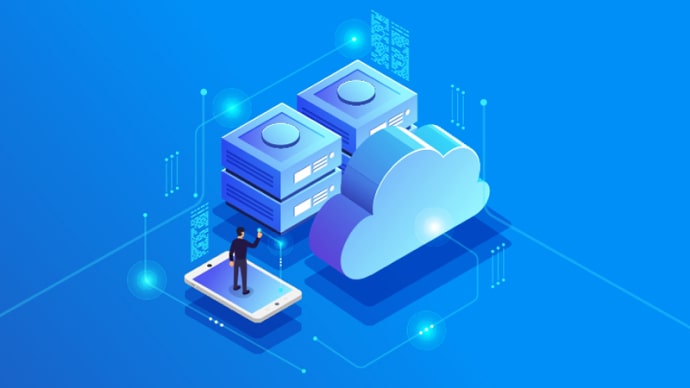
Professional Cloud DevOps Engineer: Professional Cloud DevOps Engineer
PDFs and exam guides are not so efficient, right? Prepare for your Google examination with our training course. The Professional Cloud DevOps Engineer course contains a complete batch of videos that will provide you with profound and thorough knowledge related to Google certification exam. Pass the Google Professional Cloud DevOps Engineer test with flying colors.

Curriculum for Professional Cloud DevOps Engineer Certification Video Course
| Name of Video | Time |
|---|---|
 1. Introduction & Certification Overview |
1:52 |
| Name of Video | Time |
|---|---|
 1. Google Cloud Overview |
3:33 |
 2. Create GCP Account |
6:06 |
![Play Video: [Hands-on] GCP Console Walkthrough](/design/img/playBtn.png) 3. [Hands-on] GCP Console Walkthrough |
6:35 |
 4. GCP Regions & Zones |
10:40 |
![Play Video: [Hands-on] Creating GCP Projects](/design/img/playBtn.png) 5. [Hands-on] Creating GCP Projects |
4:13 |
![Play Video: [Hands-on] Google Cloud Shell](/design/img/playBtn.png) 6. [Hands-on] Google Cloud Shell |
8:07 |
| Name of Video | Time |
|---|---|
 1. Section Introduction |
1:59 |
 2. History of Software Development Cycle |
4:01 |
 3. DevOps & SRE |
5:53 |
 4. Role of SRE |
3:13 |
 5. Blameless Postmortem |
4:29 |
 6. Error Budgets |
4:30 |
 7. Eliminating Toil |
3:26 |
 8. SLO (Service level Objective) |
2:44 |
 9. SLI (Service Level Indicator) |
4:20 |
 10. SLA (Service level Agreement) |
5:56 |
| Name of Video | Time |
|---|---|
 1. Introduction to Docker |
7:15 |
![Play Video: [Hands-on] Create Simple WebApp on Cloud Shell](/design/img/playBtn.png) 2. [Hands-on] Create Simple WebApp on Cloud Shell |
5:03 |
![Play Video: [Hands-on] Create Dockerfile](/design/img/playBtn.png) 3. [Hands-on] Create Dockerfile |
9:35 |
| Name of Video | Time |
|---|---|
 1. What is Container - V2 |
6:48 |
 2. Dive into Docker - V2 |
5:08 |
 3. Introduction to Container Registry - V2 |
5:49 |
 4. Create First Docker images - V2 |
11:25 |
 5. Optimize Docker image & Run Docker Container - V2 |
9:42 |
 6. Push Docker Image to Container registry - V2 |
7:54 |
 7. Introduction to Artifact Registry - V2 |
8:44 |
 8. Push Docker image to Artifact Registry - V2 |
4:47 |
| Name of Video | Time |
|---|---|
 1. Different Deployment Method for GCP Compute |
11:34 |
![Play Video: [Hands-on] Deploy to Google Cloud Function - I](/design/img/playBtn.png) 2. [Hands-on] Deploy to Google Cloud Function - I |
9:16 |
![Play Video: [Hands-on] Deploy to Google Cloud Function - II](/design/img/playBtn.png) 3. [Hands-on] Deploy to Google Cloud Function - II |
4:40 |
![Play Video: [Hands-on] Deploy app on Google App Engine - I](/design/img/playBtn.png) 4. [Hands-on] Deploy app on Google App Engine - I |
14:14 |
![Play Video: [Hands-on] Deploy app on Google App Engine - II](/design/img/playBtn.png) 5. [Hands-on] Deploy app on Google App Engine - II |
8:17 |
![Play Video: [Hands-on] Deploy Docker image on Cloud Run - I](/design/img/playBtn.png) 6. [Hands-on] Deploy Docker image on Cloud Run - I |
8:41 |
![Play Video: [Hands-on] Deploy Docker image on Cloud Run - II](/design/img/playBtn.png) 7. [Hands-on] Deploy Docker image on Cloud Run - II |
5:44 |
![Play Video: [Hands-on] Deploy Docker image on GKE - I](/design/img/playBtn.png) 8. [Hands-on] Deploy Docker image on GKE - I |
9:35 |
![Play Video: [Hands-on] Deploy Docker image on GKE - II](/design/img/playBtn.png) 9. [Hands-on] Deploy Docker image on GKE - II |
4:26 |
![Play Video: [Hands-on] Deploy on Google Compute Engine - I](/design/img/playBtn.png) 10. [Hands-on] Deploy on Google Compute Engine - I |
11:06 |
![Play Video: [Hands-on] Deploy on Google Compute Engine - II](/design/img/playBtn.png) 11. [Hands-on] Deploy on Google Compute Engine - II |
7:40 |
![Play Video: [Hands-on] Instance template](/design/img/playBtn.png) 12. [Hands-on] Instance template |
11:02 |
![Play Video: [Hands-on] Deploy with Managed Instance Group](/design/img/playBtn.png) 13. [Hands-on] Deploy with Managed Instance Group |
8:50 |
![Play Video: [Hands-on] Add Load balancer](/design/img/playBtn.png) 14. [Hands-on] Add Load balancer |
8:32 |
| Name of Video | Time |
|---|---|
 1. Introduction to CI/CD Pipeline |
5:25 |
 2. Different services for CI/CD |
5:38 |
| Name of Video | Time |
|---|---|
 1. Introduction to Pipeline - 1 |
3:00 |
![Play Video: [Hands-on] Step 01 : Pipeline - 1](/design/img/playBtn.png) 2. [Hands-on] Step 01 : Pipeline - 1 |
12:02 |
![Play Video: [Hands-on] Step 02 : Pipeline - 1](/design/img/playBtn.png) 3. [Hands-on] Step 02 : Pipeline - 1 |
7:57 |
![Play Video: [Hands-on] Step 03 : Pipeline - 1](/design/img/playBtn.png) 4. [Hands-on] Step 03 : Pipeline - 1 |
3:01 |
| Name of Video | Time |
|---|---|
![Play Video: [Hands-on] Step 01 : Pipeline - 2](/design/img/playBtn.png) 1. [Hands-on] Step 01 : Pipeline - 2 |
7:59 |
![Play Video: [Hands-on] Step 02 : Pipeline - 2](/design/img/playBtn.png) 2. [Hands-on] Step 02 : Pipeline - 2 |
10:05 |
![Play Video: [Hands-on] Step 03 : Pipeline - 2](/design/img/playBtn.png) 3. [Hands-on] Step 03 : Pipeline - 2 |
10:58 |
![Play Video: [Hands-on] Step 04 : Pipeline - 2](/design/img/playBtn.png) 4. [Hands-on] Step 04 : Pipeline - 2 |
5:23 |
| Name of Video | Time |
|---|---|
![Play Video: [Hands-on] Step 01 : Pipeline - 3](/design/img/playBtn.png) 1. [Hands-on] Step 01 : Pipeline - 3 |
9:50 |
![Play Video: [Hands-on] Step 02 : Pipeline - 3](/design/img/playBtn.png) 2. [Hands-on] Step 02 : Pipeline - 3 |
9:05 |
| Name of Video | Time |
|---|---|
![Play Video: [Hands-on] Step 01 : Pipeline - 4](/design/img/playBtn.png) 1. [Hands-on] Step 01 : Pipeline - 4 |
9:00 |
![Play Video: [Hands-on] Step 02 : Pipeline - 4](/design/img/playBtn.png) 2. [Hands-on] Step 02 : Pipeline - 4 |
6:44 |
| Name of Video | Time |
|---|---|
![Play Video: [Hands-on] Step 01 : Pipeline - 5](/design/img/playBtn.png) 1. [Hands-on] Step 01 : Pipeline - 5 |
10:57 |
![Play Video: [Hands-on] Step 02 : Pipeline - 5](/design/img/playBtn.png) 2. [Hands-on] Step 02 : Pipeline - 5 |
10:18 |
![Play Video: [Hands-on] Step 03 : Pipeline - 5](/design/img/playBtn.png) 3. [Hands-on] Step 03 : Pipeline - 5 |
6:14 |
![Play Video: [Hands-on] Step 04 : Pipeline - 5](/design/img/playBtn.png) 4. [Hands-on] Step 04 : Pipeline - 5 |
10:40 |
![Play Video: [Hands-on] Step 05 : Pipeline - 5](/design/img/playBtn.png) 5. [Hands-on] Step 05 : Pipeline - 5 |
3:53 |
| Name of Video | Time |
|---|---|
![Play Video: [Hands-on] Jenkins Part - I](/design/img/playBtn.png) 1. [Hands-on] Jenkins Part - I |
8:03 |
![Play Video: [Hands-on] Jenkins Part - II](/design/img/playBtn.png) 2. [Hands-on] Jenkins Part - II |
10:44 |
| Name of Video | Time |
|---|---|
 1. Introduction to Infrastructure as a code |
5:21 |
 2. What is Terraform |
2:48 |
 3. Terraform Installation |
2:18 |
![Play Video: [Hands-on] Create VM with Terraform Part - I](/design/img/playBtn.png) 4. [Hands-on] Create VM with Terraform Part - I |
10:06 |
![Play Video: [Hands-on] Create VM with Terraform Part - II](/design/img/playBtn.png) 5. [Hands-on] Create VM with Terraform Part - II |
9:43 |
![Play Video: [Hands-on] Create VM with Terraform Part - III](/design/img/playBtn.png) 6. [Hands-on] Create VM with Terraform Part - III |
7:04 |
| Name of Video | Time |
|---|---|
 1. Secure Container Deployment |
5:15 |
 2. What is Container Scanning API |
1:24 |
![Play Video: [Hands-on] Container Scanning & Base Image Demo - I](/design/img/playBtn.png) 3. [Hands-on] Container Scanning & Base Image Demo - I |
11:55 |
![Play Video: [Hands-on] Container Scanning & Base Image Demo - II](/design/img/playBtn.png) 4. [Hands-on] Container Scanning & Base Image Demo - II |
5:53 |
![Play Video: [Hands-on] Binary Authorization - I](/design/img/playBtn.png) 5. [Hands-on] Binary Authorization - I |
9:01 |
![Play Video: [Hands-on] Binary Authorization - II (Cloud Run)](/design/img/playBtn.png) 6. [Hands-on] Binary Authorization - II (Cloud Run) |
11:20 |
![Play Video: [Hands-on] Binary Authorization - III (GKE)](/design/img/playBtn.png) 7. [Hands-on] Binary Authorization - III (GKE) |
8:00 |
| Name of Video | Time |
|---|---|
 1. Introduction to Cloud Ops Tool |
2:13 |
 2. Why Operations tool required |
3:42 |
![Play Video: [Hands-on] Cloud Monitoring Exploration](/design/img/playBtn.png) 3. [Hands-on] Cloud Monitoring Exploration |
12:03 |
![Play Video: [Hands-on] Cloud Monitoring - Installation of Ops Agent](/design/img/playBtn.png) 4. [Hands-on] Cloud Monitoring - Installation of Ops Agent |
12:30 |
![Play Video: [Hands-on] Cloud Monitoring - Create Custom Dashboard](/design/img/playBtn.png) 5. [Hands-on] Cloud Monitoring - Create Custom Dashboard |
8:11 |
![Play Video: [Hands-on] Setup Uptime Check](/design/img/playBtn.png) 6. [Hands-on] Setup Uptime Check |
13:13 |
![Play Video: [Hands-on] Setup Alerting Policy](/design/img/playBtn.png) 7. [Hands-on] Setup Alerting Policy |
13:42 |
![Play Video: [Hands-on] Resource Grouping](/design/img/playBtn.png) 8. [Hands-on] Resource Grouping |
3:19 |
| Name of Video | Time |
|---|---|
![Play Video: [Hands-on] Cloud Clogging service - UI](/design/img/playBtn.png) 1. [Hands-on] Cloud Clogging service - UI |
8:20 |
 2. Types of Cloud Audit Logging |
6:48 |
![Play Video: [Hands-on] Admin Activity Logs](/design/img/playBtn.png) 3. [Hands-on] Admin Activity Logs |
9:46 |
![Play Video: [Hands-on] System Event Logs - I](/design/img/playBtn.png) 4. [Hands-on] System Event Logs - I |
4:05 |
![Play Video: [Hands-on] System Event Logs - II](/design/img/playBtn.png) 5. [Hands-on] System Event Logs - II |
3:14 |
![Play Video: [Hands-on] Data Access Logs](/design/img/playBtn.png) 6. [Hands-on] Data Access Logs |
8:45 |
![Play Video: [Hands-on] Log Collection - GCloud SDK](/design/img/playBtn.png) 7. [Hands-on] Log Collection - GCloud SDK |
11:05 |
![Play Video: [Hands-on] Log Collection - other google cloud services](/design/img/playBtn.png) 8. [Hands-on] Log Collection - other google cloud services |
6:49 |
![Play Video: [Hands-on] Log Collection - Install cloud logging agent](/design/img/playBtn.png) 9. [Hands-on] Log Collection - Install cloud logging agent |
13:04 |
![Play Video: [Hands-on] Log Collection -Cloud Logging API](/design/img/playBtn.png) 10. [Hands-on] Log Collection -Cloud Logging API |
9:04 |
![Play Video: [Hands-on] Log based Metrics - Counter](/design/img/playBtn.png) 11. [Hands-on] Log based Metrics - Counter |
9:50 |
![Play Video: [Hands-on] Log based Metrics - Distribution](/design/img/playBtn.png) 12. [Hands-on] Log based Metrics - Distribution |
6:07 |
![Play Video: [Hands-on] Cloud Log Router - I](/design/img/playBtn.png) 13. [Hands-on] Cloud Log Router - I |
9:45 |
![Play Video: [Hands-on] Cloud Log Router - II](/design/img/playBtn.png) 14. [Hands-on] Cloud Log Router - II |
10:01 |
![Play Video: [Hands-on] Cloud Log Router - III](/design/img/playBtn.png) 15. [Hands-on] Cloud Log Router - III |
4:48 |
| Name of Video | Time |
|---|---|
![Play Video: [Hands-on] Cloud Error Reporting](/design/img/playBtn.png) 1. [Hands-on] Cloud Error Reporting |
9:35 |
![Play Video: [Hands-on] Cloud Debugger](/design/img/playBtn.png) 2. [Hands-on] Cloud Debugger |
11:19 |
![Play Video: [Hands-on] Cloud Trace](/design/img/playBtn.png) 3. [Hands-on] Cloud Trace |
2:27 |
| Name of Video | Time |
|---|---|
![Play Video: [Hands-on] Cloud Billing](/design/img/playBtn.png) 1. [Hands-on] Cloud Billing |
14:16 |
![Play Video: [Hands-on] Pre-emptiable Virtual Machine](/design/img/playBtn.png) 2. [Hands-on] Pre-emptiable Virtual Machine |
5:37 |
![Play Video: [Hands-on] Compute Engine - Flat-rate, committed use, sustained use discount](/design/img/playBtn.png) 3. [Hands-on] Compute Engine - Flat-rate, committed use, sustained use discount |
8:55 |
 4. TCO - Total Cost of Operations |
2:32 |
| Name of Video | Time |
|---|---|
 1. Congratulations & way forward |
1:12 |
Google Professional Cloud DevOps Engineer Exam Dumps, Practice Test Questions
100% Latest & Updated Google Professional Cloud DevOps Engineer Practice Test Questions, Exam Dumps & Verified Answers!
30 Days Free Updates, Instant Download!
Professional Cloud DevOps Engineer Premium Bundle

- Premium File: 201 Questions & Answers. Last update: Jan 20, 2026
- Training Course: 107 Video Lectures
- Study Guide: 694 Pages
- Latest Questions
- 100% Accurate Answers
- Fast Exam Updates
Google Professional Cloud DevOps Engineer Training Course
Want verified and proven knowledge for Professional Cloud DevOps Engineer? Believe it's easy when you have ExamSnap's Professional Cloud DevOps Engineer certification video training course by your side which along with our Google Professional Cloud DevOps Engineer Exam Dumps & Practice Test questions provide a complete solution to pass your exam Read More.
Hands-On Google Professional Cloud DevOps Engineer Training for IT Professionals
GCP Cloud DevOps Certification Practice Tests: High-Quality, Exam-Style Questions to Boost Your Readiness
Course Overview
The Google Professional Cloud DevOps Engineer training course is designed to provide professionals with the skills required to manage, automate, and optimize cloud infrastructure using industry-standard DevOps practices on Google Cloud Platform. Cloud computing has become an essential aspect of modern IT infrastructure, and organizations increasingly rely on DevOps engineers to implement scalable, reliable, and secure solutions in cloud environments.
This course introduces participants to the principles of DevOps in cloud ecosystems, focusing on automating deployments, managing CI/CD pipelines, and ensuring the continuous delivery of applications. Students will gain hands-on experience with tools such as Kubernetes for container orchestration, Terraform for Infrastructure as Code, and various Google Cloud services to monitor, secure, and optimize cloud workloads.
By the end of this course, learners will be capable of designing and managing cloud-native applications, implementing continuous integration and continuous deployment pipelines, and troubleshooting issues effectively in a production cloud environment. The training emphasizes real-world scenarios, giving participants practical experience that aligns with the responsibilities of a professional cloud DevOps engineer.
What You Will Learn from This Course
How to design, implement, and manage scalable cloud infrastructure using Google Cloud Platform.
Implementing Infrastructure as Code to automate provisioning, configuration, and deployment of cloud resources.
Building and managing CI/CD pipelines to streamline application delivery.
Deploying and managing containerized applications using Kubernetes and Google Kubernetes Engine.
Monitoring, logging, and optimizing cloud applications to maintain reliability and performance.
Implementing cloud security best practices, including identity and access management, encryption, and policy enforcement.
Using Terraform and Deployment Manager to automate infrastructure provisioning.
Troubleshooting cloud infrastructure and application performance issues using Google Cloud monitoring tools.
Understanding the lifecycle of cloud-native applications and the DevOps practices that support continuous delivery.
Preparing for the Google Professional Cloud DevOps Engineer certification exam through practical scenarios and lab exercises.
Learning Objectives
By completing this course, participants will be able to:
Deploy and manage cloud infrastructure efficiently using automated tools.
Implement continuous integration and continuous deployment workflows to accelerate software delivery.
Design, deploy, and maintain containerized applications using Kubernetes clusters.
Use monitoring and logging tools to track application performance and resolve incidents proactively.
Secure cloud environments by following best practices in access control, compliance, and encryption.
Apply Infrastructure as Code principles to streamline resource management and reduce manual intervention.
Analyze and troubleshoot performance bottlenecks in cloud-based applications.
Optimize cloud workloads for cost efficiency and resource utilization.
Collaborate with cross-functional teams to implement DevOps strategies in real-world projects.
Prepare effectively for certification by understanding exam objectives and practicing hands-on scenarios.
These learning objectives are designed to ensure that participants not only understand theoretical concepts but also acquire practical skills applicable to professional cloud DevOps roles.
Requirements
To gain maximum benefit from this course, participants should have:
Basic knowledge of cloud computing concepts, including compute, storage, and networking.
Familiarity with software development practices and version control systems such as Git.
Understanding of operating systems, especially Linux, as it is commonly used in cloud environments.
Basic scripting skills in languages like Python, Bash, or Shell to automate tasks and workflows.
Interest in learning DevOps practices, continuous integration, and cloud automation tools.
Access to a Google Cloud Platform account for hands-on labs and exercises.
Willingness to explore and experiment with cloud services, Kubernetes clusters, and Infrastructure as Code tools.
While prior experience with Kubernetes, Terraform, or CI/CD pipelines is advantageous, the course is structured to guide beginners through these topics gradually, making it accessible to professionals with general cloud computing knowledge.
Course Description
This Google Professional Cloud DevOps Engineer course is a comprehensive training program focused on developing the expertise required to manage, automate, and optimize cloud infrastructure on Google Cloud Platform using DevOps practices. Participants will engage in a combination of theoretical instruction, hands-on labs, and practical exercises that mimic real-world scenarios.
The course covers core concepts of cloud infrastructure, including provisioning compute, storage, and networking resources efficiently. It emphasizes the adoption of Infrastructure as Code to automate deployment and configuration management, reducing manual intervention and minimizing the risk of human error. By mastering Infrastructure as Code tools such as Terraform and Deployment Manager, participants will gain the ability to maintain consistent, version-controlled cloud environments.
A major component of the course focuses on implementing continuous integration and continuous deployment workflows. Learners will explore tools like Cloud Build, Cloud Source Repositories, and Artifact Registry to automate application testing and deployment. This enables faster release cycles and ensures software quality across different stages of development.
Containerization and orchestration are another significant focus area. Participants will learn to deploy, scale, and manage containerized applications using Kubernetes and Google Kubernetes Engine. The course emphasizes real-world strategies for auto-scaling, load balancing, and managing container lifecycles in production environments.
Cloud monitoring, logging, and optimization are covered extensively. Students will learn to use Google Cloud’s monitoring tools to track performance, set up alerts, and resolve incidents proactively. Best practices for logging, debugging, and troubleshooting will be incorporated to enhance operational efficiency.
Security is a critical aspect of the course. Learners will understand cloud security principles, including identity and access management, network security, encryption, and compliance. They will gain practical experience in securing applications and infrastructure while maintaining accessibility and performance.
Throughout the course, participants will encounter real-world challenges that prepare them for the responsibilities of a professional cloud DevOps engineer. Labs and exercises are designed to mirror tasks commonly performed in enterprise environments, ensuring readiness for certification and practical application in professional settings.
Target Audience
This course is ideal for:
Cloud engineers and administrators seeking to specialize in DevOps practices on Google Cloud Platform.
IT professionals looking to enhance their cloud automation and orchestration skills.
Developers who want to implement CI/CD pipelines and containerized application deployment in cloud environments.
DevOps professionals aiming to gain expertise in managing cloud-native applications at scale.
System administrators seeking to transition into cloud DevOps roles.
IT teams responsible for maintaining cloud infrastructure and optimizing operational workflows.
Professionals preparing for the Google Professional Cloud DevOps Engineer certification exam.
Organizations wanting to train employees in industry-standard cloud DevOps practices.
The course accommodates both individuals with prior experience in cloud computing and those with general IT knowledge seeking to specialize in DevOps on Google Cloud Platform.
Prerequisites
To fully benefit from this training, participants should ideally have the following prerequisites:
Basic understanding of cloud computing concepts, including storage, networking, and computing resources.
Familiarity with Linux operating systems, as many cloud services and DevOps tools are Linux-based.
Understanding of software development workflows, version control systems, and collaborative coding practices.
Basic scripting knowledge in languages such as Python, Bash, or Shell for automation purposes.
Exposure to containerization concepts and an interest in learning Kubernetes and cloud-native architectures.
Access to a Google Cloud Platform account to complete hands-on labs, deployments, and exercises.
Willingness to explore CI/CD tools, infrastructure automation, and cloud monitoring practices.
While prior experience with Kubernetes, Terraform, or continuous integration tools is beneficial, the course is structured to accommodate learners at different levels, gradually introducing complex concepts through guided labs and exercises.
Participants who meet these prerequisites will find themselves able to navigate the course efficiently, acquire practical skills quickly, and gain confidence in deploying and managing cloud-native applications using DevOps methodologies.
Course Modules/Sections
This module-based course is carefully structured to take participants from foundational concepts to advanced DevOps practices in Google Cloud Platform. Each module is designed to focus on specific areas of cloud infrastructure, automation, deployment, and monitoring, providing a progressive learning experience that builds on previously acquired skills.
Module 1: Introduction to Cloud DevOps Principles
The first module introduces the core principles of DevOps in cloud environments. Participants will explore the cultural and operational aspects of DevOps, emphasizing collaboration between development and operations teams. Learners will understand how DevOps accelerates software delivery and improves system reliability by automating processes, using version control, and implementing continuous testing.
Module 2: Google Cloud Platform Essentials
This section focuses on key GCP services, including Compute Engine, Cloud Storage, Cloud SQL, and networking fundamentals. Participants will gain hands-on experience configuring virtual machines, storage buckets, and cloud networks while understanding the core services that form the foundation of cloud-native applications.
Module 3: Infrastructure as Code
Participants will learn how to implement Infrastructure as Code using Terraform and Deployment Manager. The module emphasizes automating the provisioning of cloud resources, managing configurations, and applying version control to infrastructure changes. Learners will create reproducible environments that improve operational consistency and reduce errors in deployment processes.
Module 4: Continuous Integration and Continuous Deployment
This module focuses on designing and managing CI/CD pipelines. Learners will use Cloud Build, Cloud Source Repositories, and Artifact Registry to automate testing, building, and deployment workflows. The section covers best practices for rolling updates, blue-green deployments, and canary releases, ensuring reliable application delivery.
Module 5: Containerization and Kubernetes
Containerized application management is central to modern DevOps practices. In this module, participants will learn to deploy, manage, and scale containerized applications using Kubernetes and Google Kubernetes Engine. Topics include cluster setup, pod management, service configuration, auto-scaling, and load balancing.
Module 6: Monitoring and Logging
Effective monitoring is essential for maintaining application performance. Learners will explore Google Cloud’s monitoring and logging services to track metrics, set up alerts, and proactively manage incidents. The module includes hands-on labs on setting up dashboards, analyzing logs, and optimizing system performance.
Module 7: Security and Compliance
Security is an integral part of DevOps practices. This module covers cloud security fundamentals, including identity and access management, network policies, encryption, and compliance frameworks. Participants will learn to secure cloud resources and implement security best practices across CI/CD pipelines, container deployments, and infrastructure configurations.
Module 8: Troubleshooting and Optimization
The final module emphasizes operational excellence. Participants will develop skills in debugging, performance tuning, and optimizing cloud workloads. Real-world scenarios illustrate troubleshooting methods for both infrastructure and application issues, preparing learners to handle production-level challenges efficiently.
By completing these modules, learners will gain comprehensive knowledge of cloud DevOps practices and practical experience in deploying, managing, and monitoring cloud-native applications on Google Cloud Platform.
Key Topics Covered
The course covers a wide range of topics essential for mastering cloud DevOps engineering. These topics are integrated into hands-on labs and practical exercises to ensure skill retention and real-world applicability.
Fundamentals of DevOps culture, principles, and methodologies.
Overview of Google Cloud Platform services, including Compute Engine, Cloud Storage, Cloud Functions, and Cloud SQL.
Networking in GCP, including VPCs, firewalls, load balancers, and private connectivity options.
Implementing Infrastructure as Code using Terraform and Deployment Manager.
Version-controlled infrastructure management and environment reproducibility.
CI/CD concepts and workflow design using Cloud Build, Cloud Source Repositories, and Artifact Registry.
Automated testing and deployment strategies for microservices and multi-tier applications.
Containerization fundamentals and deploying workloads with Kubernetes and Google Kubernetes Engine.
Configuring pods, services, and clusters, including autoscaling, rolling updates, and load balancing.
Monitoring and logging with Google Cloud Monitoring and Logging services.
Setting up dashboards, alerts, and automated incident responses.
Cloud security best practices, including IAM roles, policies, encryption, and compliance frameworks.
Troubleshooting infrastructure and application performance issues in production environments.
Cost optimization strategies and performance tuning for cloud resources.
Preparing for professional certification with exam-focused scenarios and hands-on exercises.
These topics are designed to provide participants with a thorough understanding of both foundational and advanced DevOps practices within the Google Cloud environment, equipping them to handle complex cloud operations and deployments.
Teaching Methodology
The teaching methodology for this course is designed to combine theoretical knowledge with hands-on practical experience, ensuring participants can apply what they learn directly to real-world scenarios.
Instructor-Led Sessions
Experienced instructors provide live demonstrations, guided walkthroughs, and detailed explanations of core concepts. These sessions ensure learners understand the reasoning behind DevOps practices, the functionality of GCP services, and the best strategies for deploying and managing cloud workloads.
Hands-On Labs
Practical exercises are a cornerstone of the course. Participants will work on lab exercises that simulate real-world cloud DevOps tasks, including provisioning infrastructure, deploying applications, configuring CI/CD pipelines, and managing Kubernetes clusters. Hands-on labs reinforce learning and enable participants to gain confidence in performing operational tasks independently.
Interactive Assignments
Assignments are designed to challenge learners to implement learned concepts in practical scenarios. These include creating reproducible infrastructure using Terraform, setting up automated deployment pipelines, monitoring applications in production, and troubleshooting common performance issues.
Case Studies and Real-World Scenarios
The course includes case studies and scenario-based exercises to help participants understand the application of DevOps principles in enterprise environments. Learners explore challenges such as scaling cloud infrastructure, handling deployment failures, and implementing secure CI/CD pipelines.
Collaborative Learning
Participants are encouraged to collaborate on exercises, share insights, and discuss best practices. Group activities help learners develop teamwork skills, which are crucial for DevOps engineers working in cross-functional teams.
Self-Paced Learning
While instructor-led sessions provide guidance, the course also allows for self-paced exploration of Google Cloud services. Participants can experiment with additional configurations, test deployment strategies, and explore advanced features of GCP tools, reinforcing their understanding of course content.
Continuous Feedback
Instructors provide continuous feedback on assignments, lab exercises, and assessments, helping learners identify areas for improvement and strengthen their understanding of DevOps practices.
This blended methodology ensures that participants not only learn theoretical concepts but also develop the practical skills necessary to excel as cloud DevOps engineers on Google Cloud Platform.
Assessment & Evaluation
Assessment and evaluation in the course are designed to measure both theoretical understanding and practical skills. Multiple evaluation methods are employed to ensure a comprehensive assessment of participant competence.
Quizzes and Knowledge Checks
Periodic quizzes are conducted at the end of each module to reinforce key concepts. These knowledge checks help participants review critical topics, including DevOps principles, cloud services, CI/CD workflows, container management, and monitoring techniques.
Hands-On Lab Evaluations
Lab exercises are evaluated based on accuracy, completeness, and adherence to best practices. Participants are assessed on their ability to deploy infrastructure using Infrastructure as Code, implement automated pipelines, configure Kubernetes clusters, and monitor and optimize cloud applications.
Project-Based Assessments
Learners undertake projects that simulate real-world cloud DevOps tasks. These projects require participants to integrate multiple concepts, such as automating deployments, managing containerized workloads, ensuring security, and optimizing performance. Project assessments evaluate problem-solving skills, practical knowledge, and the ability to apply DevOps principles effectively.
Peer Review and Collaboration
Group exercises and peer reviews provide opportunities for participants to receive feedback from colleagues. This collaborative evaluation fosters teamwork skills, encourages knowledge sharing, and helps participants refine their approach to solving complex cloud infrastructure challenges.
Performance Metrics
Assessments consider the efficiency, reliability, and scalability of solutions implemented by participants. Evaluators focus on the ability to deploy robust, maintainable, and secure infrastructure that adheres to best practices in cloud DevOps engineering.
Final Evaluation
The course concludes with a comprehensive assessment that combines theoretical questions, lab exercises, and project evaluations. This ensures that participants have a thorough understanding of Google Cloud DevOps principles and practical competence in deploying and managing cloud-native applications.
The evaluation strategy ensures that learners are well-prepared for the Google Professional Cloud DevOps Engineer certification exam and capable of performing tasks expected of professional cloud DevOps engineers in enterprise environments.
Benefits of the Course
Enrolling in the Google Professional Cloud DevOps Engineer training course provides numerous benefits for IT professionals, cloud engineers, and developers looking to specialize in DevOps practices on Google Cloud Platform. Participants gain a combination of theoretical knowledge, hands-on experience, and practical skills that can be immediately applied in professional environments.
One of the key benefits of this course is the ability to design and manage scalable, reliable cloud infrastructure. By learning Infrastructure as Code techniques using tools like Terraform and Deployment Manager, participants can automate provisioning, configuration, and maintenance of cloud resources. This automation reduces manual effort, minimizes errors, and ensures consistency across development, testing, and production environments.
Another significant advantage is mastering continuous integration and continuous deployment workflows. Participants will learn to implement automated pipelines for building, testing, and deploying applications using Cloud Build, Cloud Source Repositories, and Artifact Registry. This capability enables faster software delivery while maintaining high quality, helping organizations reduce time-to-market and improve customer satisfaction.
The course also provides extensive training in containerization and Kubernetes orchestration. Learners will acquire practical experience deploying, managing, and scaling containerized applications on Google Kubernetes Engine. Skills in container management, autoscaling, load balancing, and cluster monitoring empower participants to handle complex production environments efficiently.
Monitoring, logging, and performance optimization are other critical benefits of this course. Participants will learn to configure dashboards, alerts, and automated responses using Google Cloud’s monitoring tools. They will gain the ability to identify bottlenecks, troubleshoot performance issues, and maintain high availability for cloud applications.
Security and compliance are integrated into the course to ensure participants understand best practices for protecting cloud infrastructure. From identity and access management to encryption and policy enforcement, learners will develop the expertise to safeguard resources while maintaining operational efficiency.
The course also emphasizes exam readiness, providing scenario-based labs, practice exercises, and real-world examples aligned with the Google Professional Cloud DevOps Engineer certification. Participants who complete the course will gain the confidence and skills required to pass the certification exam and demonstrate their professional competency.
Career growth is a notable benefit as well. Completing this course positions participants for roles such as cloud DevOps engineer, cloud solutions architect, or site reliability engineer. The practical experience gained in managing cloud infrastructure, automating workflows, and implementing CI/CD pipelines provides a competitive advantage in the job market.
Additionally, participants develop critical soft skills, such as problem-solving, collaboration, and project management. Many labs and exercises are designed as collaborative tasks, encouraging teamwork and communication, which are essential skills for DevOps professionals working in cross-functional teams.
Overall, the benefits of this course extend beyond technical proficiency. Participants leave with the ability to implement end-to-end DevOps practices in cloud environments, improve operational efficiency, enhance security, and contribute to organizational success while advancing their own professional careers.
Course Duration
The duration of the Google Professional Cloud DevOps Engineer training course is designed to provide a comprehensive learning experience while allowing participants to absorb complex concepts at a manageable pace. The standard course duration is structured to be completed over eight to ten weeks, depending on the learning schedule and pace of each participant.
Week 1-2: Introduction and Fundamentals
During the initial weeks, learners are introduced to cloud computing concepts, DevOps principles, and the key services of Google Cloud Platform. Foundational knowledge of compute, storage, networking, and security is established, along with an overview of Infrastructure as Code and CI/CD workflows.
Week 3-4: Infrastructure as Code and Automation
Participants begin hands-on exercises in automating cloud infrastructure using Terraform and Deployment Manager. Labs focus on provisioning compute instances, storage solutions, network configurations, and multi-environment deployments. Learners practice applying version control to infrastructure changes and creating reproducible cloud environments.
Week 5-6: Continuous Integration and Deployment
These weeks emphasize building and managing CI/CD pipelines using Cloud Build, Cloud Source Repositories, and Artifact Registry. Participants implement automated testing, deployment strategies such as blue-green and canary releases, and manage multi-service application deployments. Lab exercises ensure learners can integrate pipeline automation with production workflows.
Week 7: Containerization and Kubernetes
Participants explore containerized application management using Kubernetes and Google Kubernetes Engine. Labs cover cluster setup, pod management, service configuration, and application scaling. Learners gain hands-on experience with autoscaling, load balancing, and troubleshooting container workloads in real-world scenarios.
Week 8: Monitoring, Logging, and Security
This week focuses on monitoring performance, configuring alerts, and maintaining system reliability using Google Cloud monitoring tools. Participants also implement security best practices, including identity and access management, encryption, and compliance policies. Hands-on exercises allow learners to secure applications and infrastructure effectively.
Week 9-10: Advanced Practices and Exam Preparation
The final weeks are dedicated to advanced deployment practices, troubleshooting, optimization, and exam readiness. Participants work on comprehensive projects that integrate all concepts learned throughout the course. Practice exams and scenario-based exercises prepare learners for the Google Professional Cloud DevOps Engineer certification.
The flexible course duration allows participants to balance learning with professional responsibilities. While the suggested schedule spans ten weeks, self-paced learners can extend the duration to accommodate deeper exploration of topics or additional practice exercises.
By the end of the course, participants will have acquired not only the knowledge and skills required for certification but also the practical experience needed to implement DevOps practices in complex cloud environments effectively.
Tools & Resources Required
To maximize the learning experience in this course, participants need access to a variety of tools and resources that facilitate hands-on practice, infrastructure automation, application deployment, and monitoring.
Google Cloud Platform Account
A Google Cloud Platform account is essential for accessing services such as Compute Engine, Cloud Storage, Cloud SQL, Kubernetes Engine, and Cloud Functions. Participants will perform lab exercises, deploy applications, and practice automation using GCP resources.
Terraform
Terraform is a key tool for implementing Infrastructure as Code. Participants will use Terraform to automate the provisioning and configuration of cloud infrastructure, create reproducible environments, and manage changes in a version-controlled manner. Hands-on exercises with Terraform reinforce skills in infrastructure automation and lifecycle management.
Deployment Manager
Deployment Manager is another tool used to define and manage cloud resources programmatically. Participants will use Deployment Manager to create templates for automated deployment of GCP services, enabling consistent and reliable infrastructure management.
Kubernetes and Google Kubernetes Engine
Kubernetes is the standard for container orchestration, and Google Kubernetes Engine provides a managed environment for deploying, managing, and scaling containerized applications. Participants will work with clusters, pods, services, and deployment strategies, gaining practical experience in real-world container management.
Cloud Build, Cloud Source Repositories, and Artifact Registry
These tools are central to CI/CD pipelines on Google Cloud Platform. Cloud Build enables automated builds and testing, Cloud Source Repositories facilitate version control and collaboration, and Artifact Registry manages artifacts and container images. Participants will integrate these tools to implement end-to-end automated deployment workflows.
Monitoring and Logging Tools
Google Cloud Monitoring and Logging tools allow participants to track performance, configure alerts, and troubleshoot operational issues. Hands-on exercises will cover setting up dashboards, analyzing logs, and responding to incidents in a timely manner.
Scripting and Automation Tools
Participants will use scripting languages such as Python, Bash, or Shell to automate repetitive tasks, write deployment scripts, and interact with cloud APIs. These skills are essential for efficient DevOps practices and real-world cloud operations.
Version Control Systems
Familiarity with Git or other version control systems is required to manage code and configuration changes. Participants will use version control to maintain infrastructure definitions, track code changes, and collaborate effectively with team members.
Documentation and Reference Materials
Participants will have access to Google Cloud documentation, best practice guides, and sample templates. These resources help learners understand service configurations, troubleshoot issues, and explore advanced features of GCP tools.
Virtual Labs and Sandboxes
Hands-on labs and sandbox environments provide safe spaces for experimentation without affecting production systems. Participants can practice deploying applications, configuring infrastructure, and testing pipelines in controlled settings, reinforcing learning through experimentation.
Optional Tools for Advanced Learning
While not mandatory, additional tools such as Jenkins, Helm charts for Kubernetes, Prometheus for monitoring, and logging integrations can be explored for advanced learning. These tools allow participants to extend their knowledge and gain exposure to complementary DevOps practices.
By utilizing these tools and resources, participants gain practical, hands-on experience in deploying, managing, and monitoring cloud infrastructure. The combination of theoretical instruction and practical application ensures learners are well-prepared for professional roles and certification exams in cloud DevOps engineering.
Career Opportunities
Completing the Google Professional Cloud DevOps Engineer training course opens up a wide array of career opportunities in cloud computing, DevOps, and IT operations. Organizations increasingly rely on cloud-native solutions, automation, and efficient deployment strategies, creating high demand for skilled professionals who can implement DevOps practices on Google Cloud Platform.
One prominent career path is that of a Cloud DevOps Engineer. Professionals in this role design, implement, and manage cloud infrastructure, ensuring reliability, scalability, and security. They automate deployments, configure CI/CD pipelines, and optimize cloud applications for performance and cost efficiency. This role is crucial for organizations seeking to accelerate software delivery and maintain continuous availability of cloud-based services.
Another opportunity is Site Reliability Engineer (SRE). SREs focus on maintaining highly available systems and automating operational processes. Skills gained in monitoring, logging, troubleshooting, and performance optimization during this course prepare participants to ensure uptime, resolve incidents proactively, and implement best practices for cloud-native applications.
Cloud Solutions Architects also benefit from this training. While architects primarily focus on designing cloud environments, knowledge of DevOps practices enables them to recommend automation strategies, deployment workflows, and containerized application solutions. Understanding Infrastructure as Code, CI/CD pipelines, and cloud orchestration ensures architects can provide practical and scalable solutions for enterprises.
For professionals interested in software development and operations integration, the role of a DevOps Engineer is an ideal fit. This role involves collaborating with development teams to streamline build, test, and deployment processes. Participants learn to manage containerized applications with Kubernetes, automate infrastructure provisioning, and implement secure CI/CD pipelines, making them valuable assets in modern development environments.
The course also prepares participants for managerial roles such as Cloud Operations Manager or DevOps Team Lead. Professionals in these positions oversee DevOps practices across projects, ensure adherence to best practices, and mentor team members. Hands-on experience gained through labs and practical exercises provides the knowledge needed to manage complex cloud infrastructure and guide teams effectively.
In addition to these roles, specialized opportunities exist in areas such as cloud security engineering, automation engineering, and performance optimization consulting. Participants skilled in monitoring, logging, and securing cloud workloads can advise organizations on best practices, implement security policies, and optimize cloud applications for performance and cost efficiency.
Certification as a Google Professional Cloud DevOps Engineer enhances credibility and employability. It signals to employers that the professional possesses the expertise to manage, automate, and optimize cloud infrastructure while implementing DevOps practices effectively. This certification can serve as a career differentiator, opening doors to senior-level positions, higher salaries, and global opportunities.
The course also equips participants with transferable skills that are relevant across multiple cloud platforms. While the training focuses on Google Cloud Platform, the principles of Infrastructure as Code, CI/CD, container orchestration, and cloud security are applicable in AWS, Azure, and hybrid cloud environments. This versatility increases career flexibility and employability across diverse IT landscapes.
Professional networking is another benefit, as participants engage with instructors, peers, and industry professionals through collaborative exercises, forums, and project work. Building connections with other cloud and DevOps professionals can lead to job referrals, mentorship opportunities, and industry insights that enhance career growth.
Organizations increasingly recognize the value of certified DevOps engineers for improving operational efficiency, reducing downtime, and accelerating product delivery. Professionals completing this course are well-positioned to contribute to digital transformation initiatives, cloud adoption strategies, and infrastructure modernization projects.
Overall, the career opportunities stemming from this training encompass technical, operational, and leadership roles. Whether participants aim to specialize in DevOps engineering, cloud architecture, security, or operational management, the knowledge and practical experience gained during the course provide a solid foundation for success in the rapidly evolving cloud technology landscape.
Enroll Today
Enrolling in the Google Professional Cloud DevOps Engineer training course is the first step toward advancing your career in cloud computing and DevOps. The course offers a structured, hands-on learning experience that equips participants with the skills required to design, deploy, and manage cloud-native applications using modern DevOps practices.
Participants can choose from flexible learning options, including instructor-led sessions, self-paced modules, and lab-based exercises. This flexibility allows professionals to balance their studies with existing work commitments while gaining practical experience in real-world cloud scenarios.
Enrollment provides access to a comprehensive curriculum covering Google Cloud Platform services, Infrastructure as Code, CI/CD pipelines, containerization with Kubernetes, cloud monitoring and logging, security practices, and optimization strategies. The course is designed to build expertise gradually, ensuring that learners can apply concepts confidently in professional settings.
Hands-on labs and practical exercises are a core component of the course, allowing participants to experiment with cloud deployments, automate infrastructure provisioning, and implement CI/CD workflows. By engaging with real-world scenarios, learners develop problem-solving skills, operational expertise, and the ability to manage complex cloud environments.
Participants also benefit from continuous support from experienced instructors. Guidance during lab exercises, feedback on assignments, and access to Q&A sessions ensure learners can overcome challenges and deepen their understanding of course material. Collaborative learning opportunities with peers further enhance knowledge retention and practical application.
Enrollment also provides access to essential tools and resources, including Google Cloud Platform accounts for lab exercises, Terraform and Deployment Manager for Infrastructure as Code, Kubernetes for container orchestration, and monitoring tools for performance management. These resources enable participants to gain practical skills that are directly applicable to professional roles.
The course prepares learners for the Google Professional Cloud DevOps Engineer certification, providing exam-focused labs, scenario-based exercises, and practice tests. Certification enhances professional credibility, signaling to employers that participants possess the expertise to manage cloud infrastructure, implement DevOps practices, and optimize applications for reliability and performance.
By enrolling today, participants position themselves for career advancement, higher earning potential, and global job opportunities. The demand for certified cloud DevOps engineers continues to grow as organizations adopt cloud-native solutions and prioritize automated, efficient workflows. Completing this course ensures that learners are prepared to meet industry demands and contribute effectively to cloud projects.
In addition to technical skills, the course fosters soft skills essential for DevOps professionals. Collaboration, communication, problem-solving, and project management abilities are developed through group exercises, interactive assignments, and scenario-based learning. These competencies enhance participants’ effectiveness in cross-functional teams and support leadership potential in cloud operations and DevOps environments.
Participants are encouraged to take advantage of the flexible course structure, explore optional advanced tools, and engage in self-paced experimentation to reinforce learning. Active participation in labs, discussions, and exercises ensures maximum skill acquisition and prepares learners for real-world cloud DevOps challenges.
Enrolling today also grants access to a professional community of cloud and DevOps practitioners. Networking with instructors and peers provides opportunities for mentorship, knowledge sharing, and professional growth. Engaging with this community allows participants to stay updated on emerging trends, best practices, and industry developments in cloud DevOps engineering.
Ultimately, enrolling in this training course is more than a learning opportunity; it is an investment in professional growth, technical expertise, and career advancement. Participants gain the skills, experience, and certification needed to thrive in cloud DevOps roles, implement modern infrastructure automation strategies, and contribute meaningfully to organizational success.
By taking this step, professionals position themselves at the forefront of cloud technology and DevOps innovation, ready to leverage the full capabilities of Google Cloud Platform to drive efficiency, reliability, and continuous delivery in modern IT environments.
Prepared by Top Experts, the top IT Trainers ensure that when it comes to your IT exam prep and you can count on ExamSnap Professional Cloud DevOps Engineer certification video training course that goes in line with the corresponding Google Professional Cloud DevOps Engineer exam dumps, study guide, and practice test questions & answers.
Purchase Individually




Google Training Courses













Only Registered Members can View Training Courses
Please fill out your email address below in order to view Training Courses. Registration is Free and Easy, You Simply need to provide an email address.
- Trusted by 1.2M IT Certification Candidates Every Month
- Hundreds Hours of Videos
- Instant download After Registration






